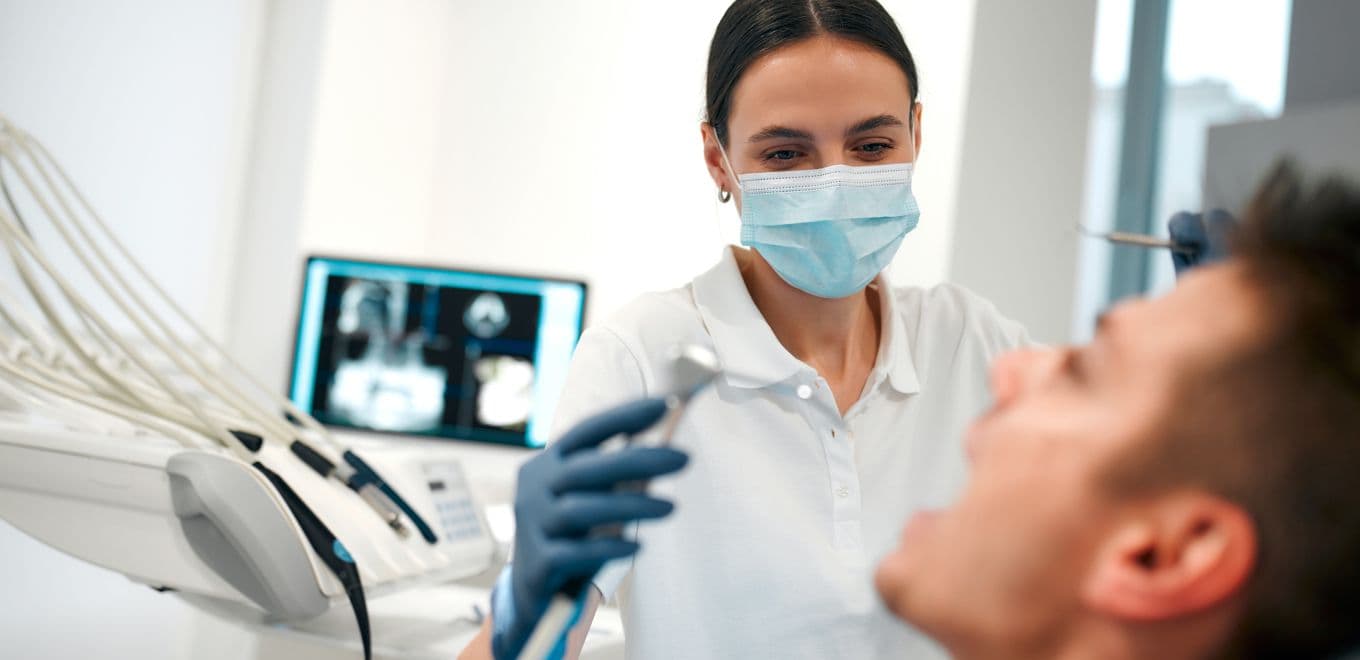Where Can I Use My HSA Card? A Practical Guide
Author:Mia Taylor
Reviewed By:Michaela Robbins, DNP
Published:
October 09, 2025

HSA Basics You Should Know (60-Second Primer)
Where Can I Use My HSA Card? (At-a-Glance)
What Can I Buy With My HSA?
Expenses That May Be Eligible With a Letter of Medical Necessity (LMN)
What Your HSA Typically Does NOT Cover
How to Use Your HSA Card in Different Settings
Travel and Family
Documentation & Reimbursement Tips
Troubleshooting: Card Declines and Workarounds
How Truemed Helps You Use Your HSA/FSA for More
The bottom line
FAQ
Where Can I Use My HSA Card? A Practical Guide
With myriad rules surrounding Health Savings Accounts (HSA), it can be confusing navigating how best to access these funds in order to pay for qualified health expenses. The good news is many HSAs come with debit cards that make tapping into your HSA savings far easier than you might expect. In fact, you may be eligible to use your HSA debit card to spend pre-tax dollars on health needs everywhere from online retailers to in-person pharmacies and big box retail stores. These convenient cards can also be swiped at urgent care facilities, hospitals, clinics, and many more places.
If you've been busy setting aside pre-tax dollars in a Health Savings Account (HSA), you may be wondering how best to access those funds when you need them. The good news is there are several ways to tap into your HSA and one of the easiest and most convenient is to simply use your HSA debit card, if your account provides one.
These cards can be used at the point-of-sale to pay for qualified healthcare expenses in the same way you would use any other type of debit card. That means your HSA card can be used at online retailers, pharmacies, drug stores, your doctor's offices and many other healthcare-related businesses.
If the process still seems confusing, this comprehensive guide will help to demystify it for you, including breaking down exactly where you can use your HSA debit card, what items you can buy and what documentation may be required.
HSA Basics You Should Know (60-Second Primer)
Before we dive into the details surrounding how and when to use your HSA debit card, let's first cover the basics about HSA accounts. Most importantly, HSAs are tax advantaged savings accounts that are only available to individuals who have a high deductible health plan (HDHP).
The contributions you make to an HSA, which occur on a pre-tax basis, are tax-deductible and also provide tax-deferred growth. In addition, the withdrawals are tax-free as long as the money is spent on a qualified expense.
On top of all of those benefits, the funds accumulated in your HSA do not have to be used up annually. You can rollover any remaining balance in a HSA year after year without forfeiting any of the money.
It's equally important to understand that funds accumulated in your HSA can only be spent on what the IRS considers to be a qualified medical expense.
The IRS outlines what constitutes a qualified expense in Publication 502, Medical and Dental Expenses, but the general rule of thumb is that "medical expenses are the costs of diagnosis, cure, mitigation, treatment, or prevention of disease, and for the purpose of affecting any part or function of the body."
Where Can I Use My HSA Card? (At-a-Glance)
Now let's break down all of the places your HSA debit card can be used. The list includes:
- Online: You can use your HSA card to pay for purchases at retail HSA/FSA stores along with brand sites that identify items for sale as 'HSA-eligible.' Telehealth platforms, labs and testing services are additional places where your HSA card can be used to make payments. Truemed is a platform that allows you to unlock your HSA/FSA funds for qualified medical expenses that might not otherwise be automatically eligible.
- In person: There are also many brick-and-mortar locations where you can simply swipe your debit card to make a payment for eligible health care purchases. This includes pharmacies such as CVS or Walgreens, along with big-box retailers like Walmart and Target at their pharmacy lanes. "In-person use is popular at chain stores such as CVS or Walgreens and at big box stores such as Walmart or Target," says Rami Sneineh, a licensed insurance producer and vice president of Insurance Navy. "When the card is swiped at the pharmacy counter, the system can separate qualified medical expenses, such as prescriptions and supplies, from general retail items, which ensures the accuracy of the process. This restricts items like toiletries or snacks, which are not qualified, from being charged to the HSA."Your HSA debit card can also be used to make a payment when you visit an urgent care facility, as well as for hospital visits. Some of the additional in-person locations where an HSA can card typically be used include dentists, vision centers, and physical therapy offices.
- By invoice: If a licensed provider has sent you a medical bill and that provider has the capability to process payments with credit or debit cards, then your HSA card can also be used for payment. (If the provider does not accept such payments, you can pay the bill out of pocket and then reimburse yourself for the expense from your HSA account.)"When providers send a medical bill, the patient can make payments using the HSA card once the invoice is received or the patient can pay using personal funds and apply for reimbursement," says Sneineh. "Reimbursement requires submitting an itemized invoice with the diagnosis or treatment and the proof of payment to the HSA administrator. This is a flexible feature that enables patients to handle present-day expenses and still reap the tax benefit."
What Can I Buy With My HSA?
Knowing where you can use your HSA debit card is only half of the equation. Understanding what you can buy with HSA funds is equally important. The list of eligible purchases includes:
- Visits and services: HSA funds can be used to cover the costs associated with primary and urgent care, specialist visits, mental health therapy, psychiatry, PT, chiropractic, acupuncture, fertility care, and prenatal/postnatal care.
- Medications: Prescriptions as well as many over-the-counter medications are eligible. In addition, menstrual care products can be purchased with HSA funds.
- Diagnostics and devices: The expense associated with lab tests, imaging, glucose meters and strips, along with such products as blood pressure cuffs, thermometers, pulse oximeters, and TENS units can all be covered with your HSA savings.
- Dental and vision: Dental cleanings, fillings, braces, and crowns are some of the dental expenses you can use your HSA funds to cover. Additionally, eye exams, glasses, contacts, and LASIK are all HSA-eligible costs.
- Home health and first aid: This category covers such items as bandages, braces, splints, sunscreen, wound care, orthopedic supports and more.

Expenses That May Be Eligible With a Letter of Medical Necessity (LMN)
In cases when something is not traditionally covered by an HSA, but is deemed medically necessary by a medical professional, a letter of medical necessity (LMN) can prove helpful. This document, provided by a licensed medical professional, substantiates that a particular purchase or expense will help prevent, treat, or alleviate a disease, enabling the use of your tax-free HSA dollars to cover the cost.
"The LMN must provide the diagnosis being treated, the therapy or product recommended by the provider, the length of time that the patient is being treated, and the provider's signature," explains Sneineh.
Some of the health expenses that may require an LMN to trigger eligibility include:
- Fitness and weight management: This includes such expenses as gym memberships, fitness equipment, personal training, digital programs, and medically necessary weight-loss programs. These expenses may be eligible for HSA coverage if they have been prescribed as medically necessary.
- Bodywork and recovery: Expenses such as massage therapy, compression garments and boots and medical-grade orthotics may all be eligible for HSA coverage when prescribed by a professional.
- Nutrition: The cost of sessions with a dietitian and even certain meal programs may also be covered by your HSA funds if they're treating a diagnosed condition.
- Supplements and devices: only when treating a specific diagnosis and documented as medically necessary.
Shopping through the Truemed platform can help you use your HSA account to its fullest potential, including seamlessly integrating the process of obtaining an LMN in the purchase process.
When you shop for items on the Truemed marketplace, you can complete a health assessment during checkout that will be reviewed by a licensed clinician to qualify for a LMN. If approved, you’ll be able to use your HSA funds at checkout.
What Your HSA Typically Does NOT Cover
Of course, not all purchases qualify for HSA coverage. For instance, cosmetic procedures and elective aesthetics cannot be paid for with your HSA savings. Similarly, general health products are not HSA eligible. This would include toiletries, purely preventive vitamins and supplements and household items.
"The list of HSA-eligible items and services is long, but it typically does not include aesthetic procedures, such as teeth whitening, cosmetic surgery, or general wellness products and services," says Brian Miller, licensed insurance agent and the COO and co-founder of OneHealth. "These aren’t eligible because they’re considered personal or cosmetic rather than medically necessary."
You'll also want to avoid what's known as "double-dipping. If your insurance has already fully covered a particular expense, do not also attempt to seek HSA reimbursement for the same expense.
“Double dipping is when you receive more than one tax-free reimbursement for the same medical expense," continues Miller. "An example would be getting reimbursed for the same doctor’s visit from both your HSA and Flexible Spending Account (FSA). You should never do this, as it is strictly prohibited by the IRS."
How to Use Your HSA Card in Different Settings
The process of using your HSA debit card is very similar to using any other type of debit or credit card for a purchase. Though there may be some minor variations depending on the setting. Here's a closer look.
- Pharmacies and retail settings: When using your HSA debit card to make a purchase at a brick-and-mortar pharmacy or retail setting, you'll want to be sure to check for labeling that indicates a product is “HSA/FSA eligible." It's also a good idea to complete your purchase at the pharmacy cash register.
- Clinics and hospitals: When receiving services at a clinic or a hospital, you can use your HSA debit card to cover the cost of any co-pays that may be charged, along with deductibles. Your HSA funds can also be tapped to pay for any approved balances resulting from these services."Most urgent care centers and hospitals allow you to use an HSA card. Just present the card at checkout like you would a debit card. In case you face issues, ask billing for HSA-compatible processing," explains J. Ryan Smolarz, host of The Medicine and Money Show.
- Online: Similar to purchasing items in person at a store, when shopping online you can add HSA-eligible items to your cart from HSA storefronts. At checkout, use your HSA debit card to pay for the purchase. In the rare case that an online retailer does not provide emailed receipts itemizing your purchase, it's a good idea to screenshot the checkout page as confirmation of what was purchased.
In cases when a merchant or provider does not accept HSA debit cards, it's still possible to have your HSA funds cover the expense. You can simply pay personally for the expense up front and then reimburse yourself from your HSA account later.

Travel and Family
Another benefit of HSAs is the ability to tap into these accounts to cover the cost of qualified medical expenses for family members. But like any other HSA expenditure, it's important to understand how to properly navigate this type of spending.
"You can use your HSA funds to pay for your spouse or dependents’ qualified medical expenses so long as you claim those individuals on your tax return," explains Miller. "This is true even if they are not covered by your health plan."
It's also possible to use HSA funds and your HSA debit card to cover qualified expenses you may incur while traveling abroad. The IRS allows for purchasing medications in another country using your HSA funds. But the catch is you must use that medication while abroad.
Additionally, in order to be covered by your HSA, the medicine must be legal in both the United States and the foreign country where it is purchased. And like in the U.S., the items being purchased must be for medical care and not general health. Be sure to also maintain your receipts documenting exactly what was purchased.

Documentation & Reimbursement Tips
When using your HSA for purchases or expenses, it's best to save as much relevant documentation as possible. This is important because the IRS may request that you provide documentation of HSA spending to ensure that only qualified costs were covered with account withdrawals.
Some of the important documents to retain include itemized receipts of what was purchased, along with any Explanation of Benefits (EOB) that may have been provided by your health insurance plan. An EOB is especially helpful to keep in your records as this document typically details what costs your health insurer will cover for any medical treatment or medically necessary products you purchased.
Medical diagnosis documents, along with physician diagnosis letters are also important to maintain, as these establish the necessity for related purchases and expenses.
Keep these and any other relevant documents for at least three to seven years.
Troubleshooting: Card Declines and Workarounds
In some cases, you may find that your HSA debit card is declined. This can happen for a variety of reasons including:
- Insufficient funds
- You've exceeded your daily spending limit, if there is one
- The item or service is not eligible for HSA coverage
- Your card has expired
- Your card is not activated
The solutions when these instances occur will depend on what triggered the decline in the first place. If you have insufficient funds in your HSA account, you can make the purchase by splitting the transaction between your HSA account and another form of purchase as well.
If you exceeded the daily spending limit for your HSA account, you'll need to wait to make the purchase on a subsequent day. If an item or service is not eligible for HSA coverage, the solution is paying for it out of pocket if you'd still like to make the purchase.
In cases when your card has not yet been activated, reach out to your HSA administrator. Similarly, if the card is expired, an HSA administrator should be able to assist.
How Truemed Helps You Use Your HSA/FSA for More
Truemed offers a seamless path to using HSA and Flexible Spending Account (FSA) funds for qualified purchases. When you shop the Truemed marketplace for items such as fitness equipment, supplements, and more, opt to pay with HSA/FSA funds at checkout and you’ll be redirected to complete a health survey that will be reviewed by a licensed healthcare provider. Then, if the items are deemed medically necessary, you’ll be able to obtain an LMN and pay with your HSA or FSA funds.
The bottom line
While HSAs can seem confusing, using your HSA debit card doesn't have to be. The most important point to remember is that an HSA debit card works nearly anywhere you receive medical care or can buy eligible health items. But before you swipe the card to pay for a product or service, be sure to check eligibility in advance. Saving receipts for any healthcare expenses you incur is equally important to ensure you have documentation of exactly how much money you spent and what specifically was purchased.
Editorial Standards
At True Medicine, Inc., we believe better health starts with trusted information. Our mission is to empower readers with accurate and accessible content grounded in peer-reviewed research, expert insight, and clinical guidance to make smarter health decisions. Every article is written or reviewed by qualified professionals and updated regularly to reflect the latest evidence. For more details on our rigorous editorial process, see here.


